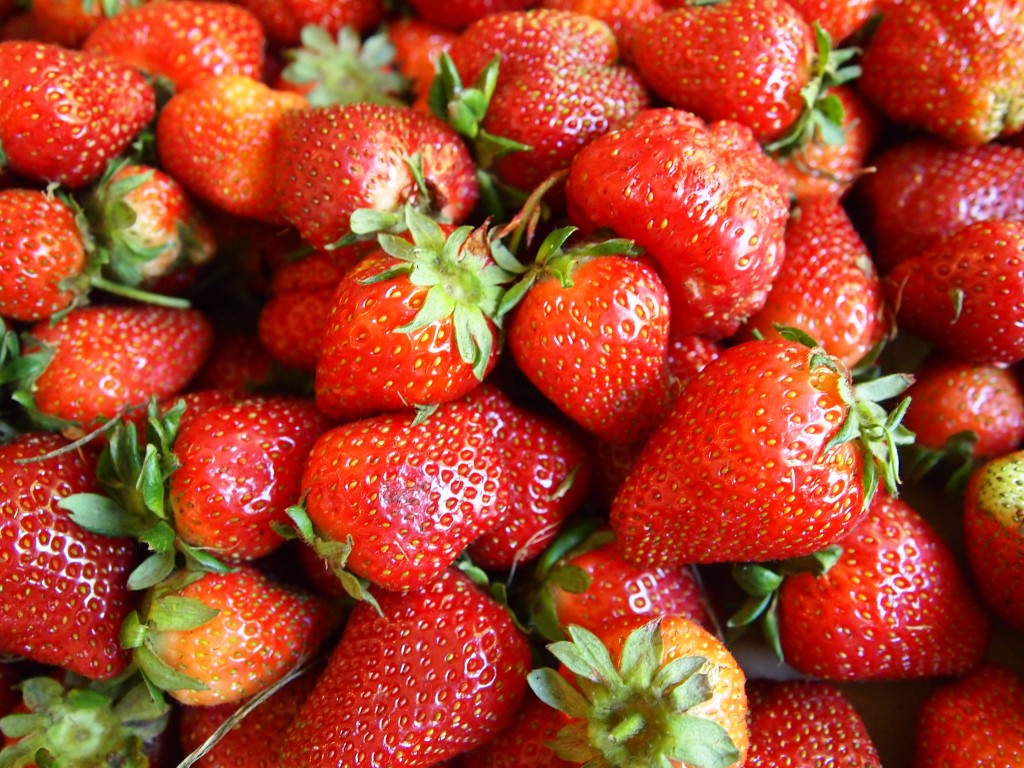
Top 10 Ways to Eat Healthier Under $6 a Day
Photo Credit: Newton Free Library, via Flickr Creative Commons
One of the misconceptions of a whole-food, plant-based approach like the one recommended by the Dr. Dean Ornish Program for Reversing Heart Disease is that it’s more expensive than a packaged, fast food, typical American approach. Fortunately, this is not true.
Eating whole, plant foods goes back to the basics and can be the most cost-effective and simple approach to eating.
You don’t have to shop specialty markets and stock up on high-cost, uncommon foods. The truth is eating whole, plant foods goes back to the basics and can be the most cost-effective and simple approach to eating. It means eliminating the production costs that make processed and packaged foods more expensive.
The daily cost of eating a plant-based diet can be as low as $6 a day, which includes three balanced meals and snacks that meet average daily nutritional needs for calories, protein, carbohydrates, fat and most nutrients. Food prices may vary some, depending on the region of the country, grocery stores, availability of produce, and bulk options. Of course, you can take a more costly route by shopping at higher-end markets, buying all organics and specialty foods, but even at markets like Whole Foods, there are affordable choices. And don’t forget the other important savings: you’re limiting the carbon footprint cost of processed foods.
Tips for Low-Cost, Plant-Based Eating:
Bulk is Better
Setting up a budget-friendly kitchen and pantry is the first step to making your dollar stretch each week. This includes a well-stocked pantry with some inexpensive bulk basics such as:
- Dried Spices and Herbs: For the biggest cost savings, visit a local co-op, if available. Getting started with a full stock of 10 basic spices can range on average from $8 for bulk to less than $28 for low-cost bottled. Buy small amounts and replenish them as needed. Note: The shelf life for dried herbs is six months and one year for ground spices.
- Dry Beans and Lentils: One pound of bulk dry beans can stretch across many meals. The average cost of pound dried beans is two dollars for eight cups of cooked beans, which equals 25 cents a cup. The average cost of canned beans is 79 cents to two dollars for organic beans.
- Whole grains: The average price is 80 cents per pound. Brown rice yields six to seven cups of cooked rice, which is 12 cents a cup.
Large Quantity Condiments
For cost savings, buy items in larger quantities that have a long shelf life such as soy sauce, vinegars, Tabasco sauce, and mustard.
Trash to Treasure
Save your vegetables scraps and washed peels (onions, mushrooms stems, celery, tips of green beans, greens, kale, collards, top or peels of carrots or beats, unused garlic, potatoes skins, herbs). Toss them in a freezer bag or container and save them to make a nutrient-rich, delicious, homemade vegetable broth. Just add water and a bay leaf.
You can also save your fruit and produce scraps for smoothies. With fruit, this includes the tops of strawberries, lemon peel, apple scraps, browning bananas (peel and chop first, before freezing).
Fresh to Frozen
When your produce is reaching the end of its fresh shelf life and about to go bad, try to catch it early and freeze it to make broth later. Also, buy produce on sale and freeze it. And stock up on pre-frozen produce on sale by watching for specials.
Shop and Save
Look for specials and deals, cut coupons, or use grocery store Apps for weekly and savings. Dollar Stores, Walmart, Costco and Target can have great bargains on food, including produce.
Shop Online and Save
Shopping online is convenient and can be cost-effective. It is also a great option for purchasing items that you can’t find locally or may be higher priced in your area. Bulkfoods.com is an easy way to buy bulk foods and Amazon.com often has good deals on food items that can be shipped right to your doorstep.
Plan and Save
Planning is key to any healthy budget. Make your weekly meal plan and buy only what you need, so you don’t waste food. Make a list to make sure you’re well stocked for the week and avoid impulse buying.
Buy Local and Fresh
Farmers markets are a great way to buy fresh and save while supporting your local community and farmers. If you go to the farmers market late in the day, or on a rainy day, you’ll often find discounts because farmers are eager to empty their trucks. Here’s a handy farmers market finder tool.
Batch Cooking for the Week
Cooking with a whole-food, plant-based approach saves both money and time with a few simple cooking techniques such as batch cooking for the week.
- 1 lb beans in a slow cooker: Soak your beans overnight, rinse and place in a slow cooker; set on slow for 6 hours and leave it.
- 1 lb brown rice: Cook a batch for the week in a rice cooker or steamer so you have cooked grains for easy assembly of your meals.
- 1 lb whole grain pasta: Boil your pasta for the week for quick-and easy, grab-and-go options.
- 1 lb sweet potatoes: Bake the potatoes for the week for quick-and easy, grab-and-go options.
- Chop veggies for quick and easy assembly meals: You’ll also save time if you chop your veggies for the week.
Compare and Save
The below table, based on data from the Bureau of Labor Statistics, shows the cost comparison of animal foods and added fats versus a low-fat, whole-food, plant-based approach to grocery shopping. For example, one pound of lean ground beef will cost on average $6 versus a pound of beans which costs $1.50 and yields 16 servings (a week of meals). Notice how much you could save by making heart-healthier choices and filling your cart with whole, plant-based foods.
2015 Average Retail Food Prices
| Food | Average Cost |
| Meat per lb | |
| Lean ground beef | $6.03 |
| Chuck, ground beef | $4.20 |
| Chuck Roast | $5.70 |
| Steak, sirloin | $8 |
| Bacon | $5.60 |
| Ham | $2.50-4.40 |
| Poultry | $1.50-3.40 |
| Dairy | |
| Milk: gal | $3.70 |
| Cheese: lb | $5.40 |
| Fats | |
| Margarine:1 lb tub | $2.00 |
| Olive oil: 17 oz | $6.75 |
| Nuts, almonds: per lb | $8.99 |
| Mixed nuts per lb | $9.99-11.99 |
| Peanut butter per lb | $2.91 |
| Packaged | |
| Frozen entrée | $3.00-6.00 |
| Potato chips: 16 oz | $4.30 |
| Bread, whole wheat | $1.90 |
| Pasta per lb | $1.20 |
| Whole Plant Foods | |
| Beans, dry per lb | $1.50 |
| Grains, rice per lb | $0.70 |
| Vegetables per lb | |
| Carrots, trimmed | $0.75 |
| Broccoli | $1.70 |
| Romaine lettuce | $2.04 |
| Potatoes | $0.67 |
| Fruit per lb | |
| Apples | $1.30 |
| Bananas | $0.58 |
| Oranges | $1.19 |
| Strawberries | $2.45 |
*Explore these additional cost-saving resources.
What strategies do you use to start to improve your health while stretching your dollars?







